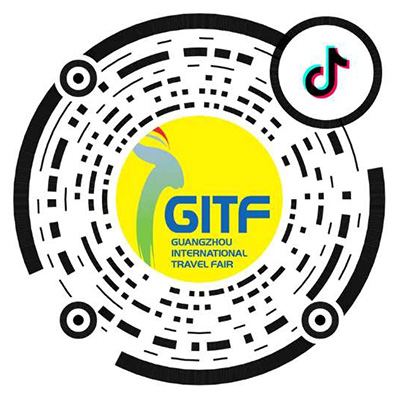
Forum Review丨 “Meaningful Tourism” is on the rise, and “Enduring Connections” is full of hope
2025-06-17
Is traveling just about sightseeing and leisure? What is the significance of tourism and how to achieve meaningful tourism? As the oldest tourism exhibition in China, GITF has been guiding the industry's in-depth thinking with its mission to create a wind vane for the industry. At the 33rd Guangzhou International Travel Fair (GITF), there is a forum that closely follows the core theme of this year's GITF and invites industry experts to open a deep brainstorming together.
Tourism is a process of creating connections, connections with others, connections with the world. With the concept of sustainable development, the connections made through tourism will also be more sustainable. Meaningful tourism may be an emerging concept at the moment, but the fog is lifting to reveal a more promising future, and it is a fresh impetus for the sustainable development of global tourism in the future.
Part.1
Clearing the fog: what is “meaningful tourism”?
At the beginning of the forum, Wolfgang Georg Arlt, Founder and Executive Director of the Center for Meaningful Tourism, introduced the Center for Meaningful Tourism, a London-founded non-profit organization that focuses on two main areas: one is meaningful tourism, and the other is outbound tourism from China. “ The meaningful tourism paradigm is very simple to define.” According to Wolfgang, the tourism industry wants all those involved to be happy, so by definition there are six main stakeholders in meaningful tourism, which include the tourists/hotel guests, the community, tourism practitioners, tourism and hospitality providers, all levels of government, and the environment, to name a few. According to him, meaningful tourism is a tool that can be utilized in practical situations to help develop strategies and implement them, it can also be used for comparisons, such as comparing destinations with other destinations and therefore seeing progress, and most importantly, it can help to Most importantly, it helps to better understand the benefits of tourism, especially for local communities.
The origins of Meaningful Tourism date back to before the outbreak, when the topic of “overtourism” was widely discussed because of the number of tourists and their impact on the environment, and it got the industry thinking about how to do more meaningful tourism. To promote an idea, you need role models and people to promote it, and starting in 2021, meaningful tourism will be better understood with the Meaningful Tourism Awards being presented in Singapore, Doha and elsewhere, Wolfgang said, noting that two years ago the Center had worked with 88 countries to better inform people in those countries about what meaningful tourism means. Since then, the Center has also done trainings, workshops, and participated in such workshops to show the trainees how to better utilize the tool of Meaningful Tourism.
Part.2
Shaping the Pioneers: Building an Asia-Pacific Model for Meaningful Tourism
After the birth of a new concept, it is necessary to have pioneers who will be the first to put it into practice, improve and enrich it in practice, and prove its future potential, which is also the story of what will happen in the future of “meaningful tourism”.
Who will be the practitioners and pioneers of “meaningful tourism”? Peter Semone, Chairman of the Asia Pacific Travel Association (PATA), then put the spotlight on Asia when he said that PATA is committed to leading the development of tourism in the Asia Pacific region and believes that meaningful tourism is the key to achieving this goal. He mentioned that PATA is working with governments and businesses to create a meaningful Asia-Pacific tourism economy through innovation, collaboration and adaptation.
" For PATA, we are very much focused on how to better lead the tourism industry in the Asia-Pacific region, that's our mission. I think it's a very rewarding mission because I think the Asia Pacific region is the best tourism destination in the world." Peter Semone believes that Asia is a very dynamic region and the opportunity will exist for Asia to become a global leader in tourism. Therefore, he believes that PATA needs to have a more meaningful and elevated vision, and after in-depth discussions with industry experts, he has decided to change the association's vision to one of “building a meaningful Asian tourism economy”. He hoped that with the development of tourism, not only tourists can be happy, but also local communities can be happy. Specifically, he hopes to lead the way to a better tourism economy and industry in Asia, one that is profitable and profitable, does not damage the environment, does not inconvenience the local community, and can even lead to a better life for the local people.
At the forum, Peter Semone summarized PATA's mission with three key words: innovation, cooperation and adaptation. Firstly, because of innovation, it is possible to make tourism products more value-added and destinations more value-added from which they can be profitable. Secondly, it is important to cooperate, to come together to realize meaningful tourism, and only in this way can we improve and promote the development of the tourism industry. Finally, to adapt, the world will continue to change radically in the next decade or two, for example, there will be more crises in the future, perhaps geopolitical crises, natural disasters, and crises of any kind, and therefore it is necessary to adapt through constant adaptation and to take a joined-up approach to meaningful cooperation.
Part.3
Searching for meaning: the seeds of inspiration have been planted
How does the industry view the futuristic concept of “meaningful tourism” and what are the challenges it encounters? How can the concept be enriched and given more meaning in a continuous and ongoing connection? In search of meaning: the seeds of inspiration have been planted.
Catherine Germier, Founder of Millennium Destinations, was the first to express her views during the roundtable session. She believes that the idea of meaningful travel is very meaningful and that it brings a lot of inspiration: "To me, making tourism and hospitality sustainable means that we have to create as much value as possible. We have to be very inclusive, not just for those who are wealthy enough to travel, but for all people, men and women, to be able to benefit and be satisfied from tourism." Catherine Germier puts an inclusive perspective on this. In her view, the next thing to focus on is the whole ecosystem, making sure that it is competitive: “Ultimately we have to create value for all.”
Anita Chan, CEO of Compass Edge, admits that there is still a big distance in between from sustainable development to meaningful tourism, which are concepts belonging to different levels, and she believes that for hotels, if they want to make tourism more meaningful or be able to provide more meaningful tourism, they need to make efforts in all aspects.
Peter Semone believes that in order to implement meaningful tourism, there are still some dilemmas of change in the old way of measuring tourism, which does not only stop at how many tourists, how much consumption, but can introduce economic indicators, cultural indicators, etc. for comprehensive consideration. Anita Chan, CEO of Compass Edge, frankly admits that from sustainable development to meaningful tourism There is still a big distance in between, and it is a concept belonging to different levels. She believes that for hotels, if they want to make tourism more meaningful or be able to provide more meaningful tourism, they need to make efforts in all aspects.
As the discussion progressed, the participants all agreed that cooperation, collaboration, communication and coordination are very important, which is the most important point in today's tourism industry. These in-depth thoughts also inspired the audience on stage. During the interactive Q&A session at the end of the forum, some audience members mentioned that the concept of meaningful tourism is very new and will overturn the traditional measurement standards, but how to find a balance between the traditional economic KPIs and the new ideas?
To this, Peter Semone replied that governments first need to be persuaded to shift their way of thinking, and he admits that this will take a long time to change: "The world is going to change a lot in the next decade or two, and we're going to be forced to need to think better about our industry, not just about economic revenues, but also about more, and that's going to require us to think in a different ways of measuring." Catherine Germier agrees, saying that it's important to go out and guide people to make changes, transform, and grow, for example by launching initiatives that can radicalize or catalyze a shift: “Life will be better that way, and our tourism industry will be better too.”
The concept of “Meaningful Tourism” has “stirred up a thousand waves” through the platform of GITF. Participants expressed that they were glad that the theme of GITF was “Meaningful Tourism, Lasting Connections”, and that few exhibitions in the world would take “Meaningful Tourism” as their theme, which was a leading start. Although the forum has ended, the discussion on the topic of meaningful tourism has never ended. Both industry insiders and audience members planted a seed of meaningful tourism in their hearts, and meaningful inspirations took place as a result.
Address: Room 1510, West Tower, Poly Trade Center, No.1000 Xingang East Road, Haizhu District, Guangzhou, China










